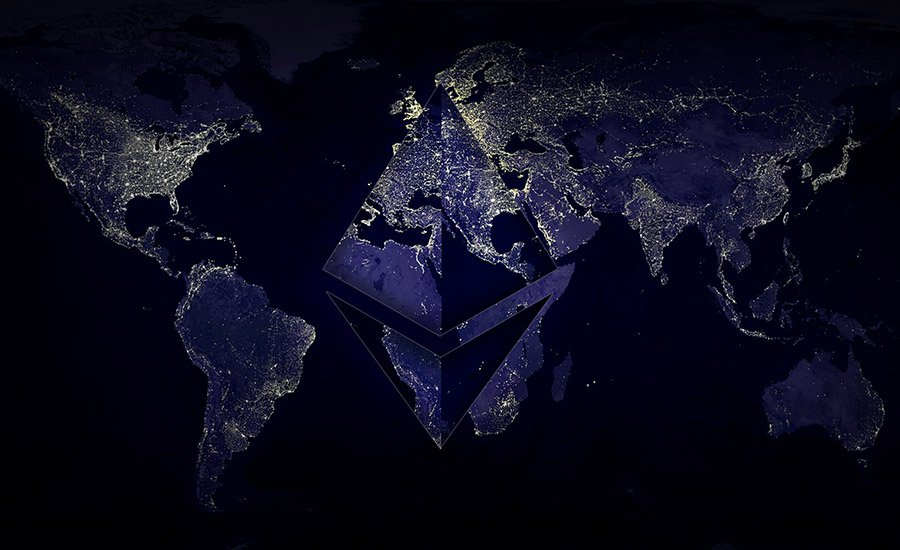Microsoft Partners with Ethereum Company, Offers Cloud-Based Blockchain Application Development Platform to Its Clients
Microsoft has partnered with Consensys, a blockchain startup focused on Ethereum technology, The Wall Street Journal reports. Through the partnership, customers of Azure, Microsoft’s cloud-based business service, will have access to tools that will allow them to experiment with and build cloud-based blockchain applications, from securities trading to cross-border payments to corporate accounting, and offer them to their own customers.
ConsenSys was founded in October 2014 by Joseph Lubin, who co-founded the Ethereum Foundation with Vitalik Buterin. Based in Brooklyn and staffed by 60 full-time developers and 30 consultants worldwide, the company formed ConsenSys Enterprise to develop large-scale blockchain solutions.
Azure clients will be able to rapidly prototype blockchain applications, from accounting to logistics to cross-border payments and settlement, and deploy their applications to the cloud. Firms that create products on Azure’s blockchain service can choose whether to release the product to the general public or control who has access to them.
ConsenSys is building and maintaining the service, and Microsoft is essentially providing the distribution platform, which in this case is Azure. ConsenSys isn’t getting any revenue under the partnership, but plans to offer consulting and other high-end services to Azure clients. The new cloud-based blockchain app development and deployment service, dubbed Ethereum Blockchain-as-a-Service (E BaaS), will be formally revealed at Ethereum’s Developer Conference, DEVCON, in London on November 10.
“Focusing on financial services, we saw a lot of potential for a framework and platform like Ethereum to go across the platform of financial institutions and modernize a lot of processes that were stuck in the past,” said Marley Gray, director of technology strategy and U.S. financial services at Microsoft, TechCrunch reports. “We thought that Ethereum was a really good platform for building distributed ledger applications.”
BlockApps’ Strato, a full-stack Ethereum technology solution, has been chosen as a technology platform for E BaaS. Strato permits building customized blockchain ledgers based on Turing-complete Ethereum standards, with built-in support for smart contracts. The company claims that, using Strato, developers can build blockchain applications faster and efficiently using Web tools they are already familiar with.
“Microsoft is excited to host BlockApps Strato on Azure Ethereum BaaS,” noted Gray in a press release jointly issued my Microsoft and BlockApps. “BlockApps Strato is a full-stack technology solution that allows users to build industry-specific Blockchain applications on top of customized private, consortium (semi-private), or public- permissioned Blockchain ledgers.”
There is “tremendous hunger” for blockchain tools among Microsoft’s customers, Gray told The Wall Street Journal, adding that the company was attracted to Ethereum by its flexibility.
“Microsoft is the perfect technology alliance to deploy our flagship product, BlockApps Strato,” noted Victor Wong, CEO of BlockApps. “Microsoft Azure is an extremely strong cloud and Microsoft expertise is unparalleled in the enterprise sector. We see this as a first step in educating enterprise level clientele about the power behind Ethereum blockchain technology.”
“This is a watershed moment towards mass-adoption,” Andrew Keys, director of enterprise business development and communications at ConsenSys, told New York Business Journal. “This makes development of blockchain apps exponentially easier.” Keys described Strato as a “blockchain-specific sandbox” where developers can refine their apps before deployment on the public-facing Ethereum blockchain.
The choice of Ethereum over Bitcoin is motivated by Ethereum’s Turing-completeness and flexibility. “Bitcoin offers one functionality which is the monetary functionality,” said Lubin to TechCrunch. “It’s difficult to build arbitrarily difficult functionality into the program.” He added that, with Ethereum, there’s a complete computational machine running within every node of the network.
In an article titled “Programmable Blockchains in Context: Ethereum’s Future,” published in the ConsenSys Medium channel, Vinay Gupta describes the potential of Ethereum as a next-generation blockchain platform.
The post Microsoft Partners with Ethereum Company, Offers Cloud-Based Blockchain Application Development Platform to Its Clients appeared first on Bitcoin Magazine.



